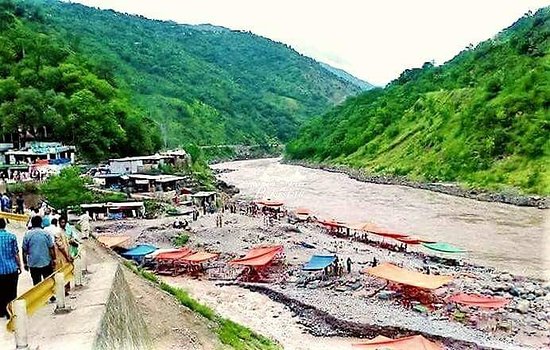Azad Kashmir – A Foreign Territory

Attorney General Munawar Iqbal Duggal argued in the Islamabad High Court case of Kashmiripoet Ahmad Farhad that Pakistani courts have historically treated Azad Kashmir as a foreignterritory in their judgments. This stance is consistent with past practices. Pakistan’s presence inAzad Kashmir is primarily to fulfill its responsibilities under the UNCIP Resolutions. While this argument holds legally, the political and administrative treatment of Azad Kashmirhas been markedly different and unjust. The Karachi Agreement’s Clause VIII is often used asa tool for ruling and administering Azad Kashmir. There is significant external interference,especially in the appointment of members to the superior judiciary in Azad Kashmir, whereindividuals from outside the state have maintained constitutional authority. The Azad Jammu and Kashmir Interim Constitution Act of 1974, formulated by Pakistan’sMinistry of Kashmir Affairs, functions more as a dictate and a form of modern colonialenforcement. This act contradicts the type of government and administration envisioned in theUNCIP resolutions. Azad Kashmir – Local Authority under the UN Template Under the UN template, Azad Kashmir is recognized as a Local Authority and should be underUN supervision. In the absence of such supervision, Pakistan has assumed responsibilitiesunder the UNCIP Resolutions to assist the Local Authority in improving administration andprogressing towards a UN-supervised plebiscite. Consequently, the legal basis for Pakistan’spresence in Azad Kashmir differs significantly from that of India’s presence in other parts ofJammu and Kashmir. The current relationship between the Government of Pakistan and the Government of AzadJammu and Kashmir (AJ&K) should align with the UN template. This relationship is intendedto be temporary, lasting only until the people of the state can participate in a UN-supervisedvote. However, there are well-argued views that AJ&K has failed to function effectively as aLocal Authority. The distribution of duties has been muddled by the Karachi Agreement ofApril 1949, the AJ&K Constitution Act of 1974, the AJ&K High Court decision of March1993, and routine directives from the Ministry of Kashmir Affairs. Much of this confusion is without merit and lacks legal sanction. These arrangements cannotoverride the stipulations of the UN template on Kashmir or the provisions outlined in Article257 of the Constitution of Pakistan. India’s Sphere of Influence The Government of India, during the 533rd meeting of the UN Security Council on March 1,1951, acknowledged that its authority over the Government of Kashmir is limited to certainsubjects, beyond which it can only offer advice without imposing decisions. It emphasized that“the people of Kashmir are not mere chattels to be disposed of according to a rigid formula;their future must be decided in their own interests and in accordance with their own desires.”The State Autonomy Committee Report of July 2000, adopted by both houses of the J & KLegislature, reminded the Government of India of its temporary and limited influence inJammu and Kashmir. At the 773rd meeting of the UN Security Council, the Philippines clarified the status of Jammuand Kashmir, stating that “pending the holding of a plebiscite, neither India nor Pakistan canclaim sovereignty over the State of Jammu and Kashmir.”

